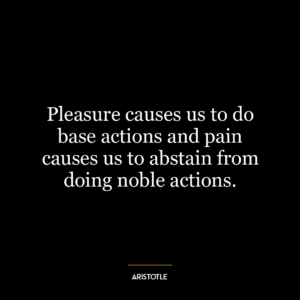“In justice is all virtues found in sum” is a profound statement that encapsulates Aristotle’s view on justice and virtue. The quote suggests that justice is the ultimate virtue, encompassing all other virtues within it. Essentially, if one is just, they are also embodying other virtues such as courage, wisdom, temperance, and more.
Aristotle views justice as a holistic virtue, a sort of moral umbrella under which all other virtues reside. It’s not just about fairness in distribution or retribution, but also about the right conduct towards others, being honest, being brave, being temperate – all these are elements of being just.
This implies that justice is not only about law and order or punishment for wrongdoings, but it’s a broader concept that includes the way we behave and interact with others. It’s about being morally sound, treating others with respect, and doing what is right.
In today’s world, this idea can be applied in various ways. In a societal context, it suggests that justice should not only be about punishing wrongdoers but also about promoting and rewarding good behavior. It’s about creating a society where fairness, honesty, respect, and kindness are valued and upheld.
In personal development, it means striving to be a just person in all aspects of life. It’s about aiming to be honest, respectful, kind, generous, and fair in all our interactions. It’s about making decisions that are not only beneficial to us but also to others. It’s about taking responsibility for our actions and striving to do what is right, even when it’s difficult.
In essence, the pursuit of justice, according to Aristotle, is the pursuit of virtue in its entirety. It’s about becoming the best version of ourselves and contributing to a better, fairer, and more virtuous society.















